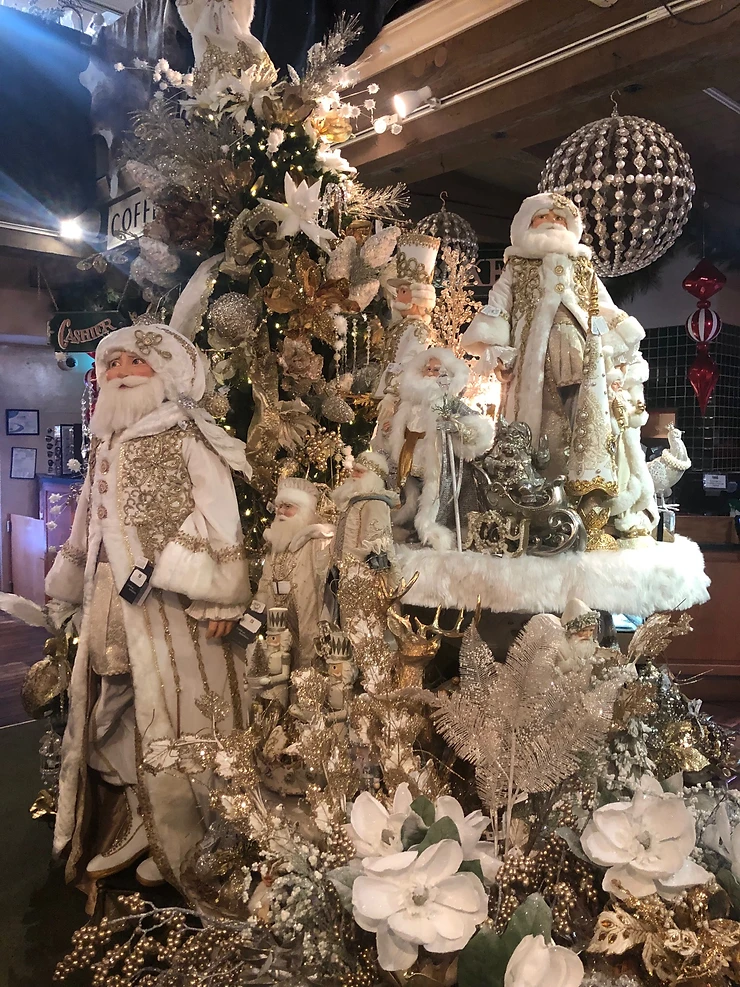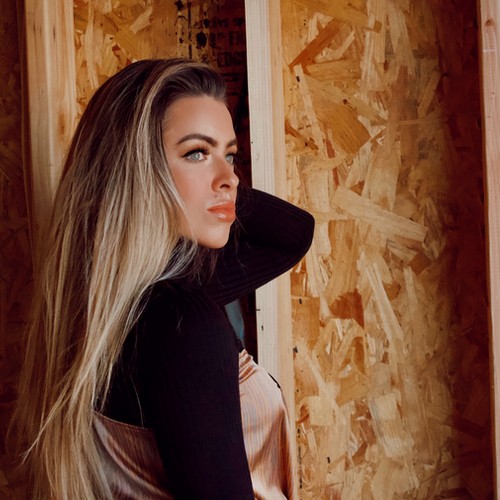John Kroll… I could use so many words to describe this man.
I suppose I will start by explaining how our relationship began, which as you can guess, based on the topic, was through work.
It was back when I was working in the Accounts Receivable department and his words resulted in a bodily response – that bodily response being tears. I had never met someone so sure of themselves, in a way that may be off-putting to people; if you’re doing something inefficiently, and John is witness to it, WATCH OUT. And as someone with an inability to handle things professionally at that time, you better believe my verbal response came out as defensively as I could muster. He handled it well, though; we talked everything out, and from there, our friendship started – a friendship I actually cherish. So much so, in fact, that we’ll carve out time to talk about once a month. He hasn’t been a client for about eight months now, which should give you some perspective on the priority to connect outside of work. As the years have gone by, John’s removed businesses from his plate and has taken up the buying and selling of vintage cars. I swear, he’s never not busy.
Which brings me to the topic at hand – WORK ETHIC – who better to interview than someone that’s been in practically every industry, with an aptitude to tell a story? Plus, Mark Cuban wasn’t available this week… he’s investing money in combating coronavirus (maybe?).
Speaking of illnesses, naturally, the first topic of our conversation was the hysteria that is COVID-19. And as I write this, I notice myself sniffling… DUN DUN DUN. PS – How great is it that we’re getting emails from every single CEO telling us how they’re handling it? Thanks so much, Sears, I was so eager to hear how your company is handling the virus. He told me when SARS was the global pandemic, people had to walk through temperature machines before traveling. He also told me restaurants near him are now putting thermometers up to everyone’s head before allowing them to the building. What a time to be alive.
Moving on to the meat of the story… I asked John about his way of approaching people, as he’s filled me in on conversations he’s had with moving companies, waiters, chefs, cashiers, enter in whichever job comes to mind. He told me he really does think he’s helping someone, whether it’s the owner or the employee, and that so many of the inefficiencies he’s seeing are things people should know as they’re coming out of high school. But nowadays, he says, it seems like high schoolers don’t work anymore, which is a problem, because whether or not the parents are well off, working from a young age instills a much-needed work ethic.
Of course, that’s quite a broad generalization, but the sentiment remains – if we compare this last decade to the 60’s or 70’s, it’s clear society doesn’t expect the same from kids anymore – nowadays, children are exposed to everything and get everything without earning it.
“When I was a kid, there were five or six envelopes in the house. When your parents got paid, they took the money and put cash in each of the envelopes to pay bills. When the envelope marked ‘food’ was empty, we didn’t go get food. We’d wait the two days and make do with what we had, rather than spending what we didn’t have.”
It is such a different world we live in now, where credit cards are so prevalent, allowing people to spend money they don’t have, resulting in such minimal budgetary refinement.
“You know how many times I’ve seen a family come in to buy their child’s first car, and they put it all on credit? These aren’t starter cars either – they’re cars that tell their peers they have money to spend.”
Looking at the world from John’s lens, I asked if he grew up middle class. He responded with a simple ‘sure’ and then explained his parents were both business owners – neither of them wealthy.
“I assume your parents’ careers are what drew you to pursue the path you went down then. When would you say you realized this desire in you?”
He responded without hesitation, “I think around fifth grade, I knew I would be a businessman. I didn’t know what, how, or why, but I just knew.”
Naturally, I think back to myself at nine or ten years old and can say with certainty I didn’t have an inclination that I wanted to be a businesswoman, although I do know I told my family I’d be famous. I suppose there is still plenty of time for that to materialize, assuming we aren’t actually experiencing end times.
I asked when he opened his first business, expecting him to tell me a story about something he started with his buddies at 18 years old. But of course, he couldn’t wait that long.
“I would say my first run was when I was twelve. I looked at the guy paying me a dollar an hour to cut the grass at an apartment complex and told him I’d take over the space for a deal. He agreed and from then on, I was doing all the work in half the time. Then at fourteen, I got a paper route. I’d always show up early and shmooze with everyone, asking questions and adding to the conversation where I could. At the beginning, I was divvying out 75 papers a day, making $75 a month. I was doing that for weeks before my manager reached out one night, asking if I could help him deliver to the six uncovered routes. We’d be throwing out 500 newspapers. Of course I agreed. I remember we were out all night and I wouldn’t get home until after 8 in the morning. I started doing that every week, which meant I started memorizing the routes. At a certain point, I asked if I could take over a route, which turned into two, which turned into more. At 14, in Dallas, TX, I was making $1200 a month.”
It’s clear John would make his dream become a reality in whatever way he saw fit; his hard work seemed second to none. With that, I asked when he actually owned his first business, and was again, shocked by his answer.
He told me the family moved to LA when he was about to turn 15 and one day, as they pulled into the gas station, he rolled down the window from his mom’s car and asked the older man if he could help out after school. It was the owner of the gas station and he agreed – he said he would pay John $1.10 an hour, or if he took a dollar an hour, he would give him longer shifts. Of course, John agreed to the latter.
“After working there for a few months, Harry said he had to put all of his focus on his other gas stations, so he’d have to fire me as he was selling the business. I asked Harry what he wanted for it and he told me $1000 bucks. I told him I’d pay it and pulled out a hundred from my pocket as a down payment. When I came the next day to give him the rest of the deposit, he said I was $100 short… I needed to purchase the inventory. I didn’t have the money so I walked two miles to ask my Grandma. She still remembered that I borrowed $2 from her when I was ten and had no interest in lending me anything more. I haggled with her for about an hour before she gave in.” “Okay, wait, so you’re fifteen and in school, and now own a gas station… how does that work?” I pressed, so fascinated with the fact that this was just how his brain operated.
He told me he worked there for the summer. “Oh yeah, I worked from 6am – 10pm every day. If I could’ve slept there, I would have. I remember drinking Orange Julius’s all the time and also remember how bad the smog was. There were two gas stations across the street and every time their price would go up a penny or two, I’d leave mine as is and avoid the calls from the oil companies. At the end of the summer, I sold the gas station for $3 grand and made out with a $5,000 profit.”
He explained that his ambition may have to do with the time he was born, saying him and his friends didn’t get an allowance growing up. If they wanted to do something or buy something, they’d have to figure out how to make the money. Before they were ten years old, a group of them would ride their bikes on the weekends and go to people’s houses, offering to clean windows and pull weeds, for whatever price the home owners were willing to pay. “Honestly,” he said, “those days were perfect. We’d get in our exercise, spend time together, meet a goal, make some money, and grab lunch at the nearest burger joint.”
Sounds like I should’ve played less Sims and spent more time offering to do many dance routines for my neighbors… oh wait, I did do that. I guess it’s time to retro-bill everyone the cover charge.
But really, a lot of our habits are shaped by society’s expectations, aren’t they? I can guarantee that if all my friends were working on the weekends or during the summer, even as a child, I’d want to be doing the same.
“Yeah, so back in the day, by the time you graduated from high school, you knew you had to be clean, show up on time, and most importantly, you knew how to work. And once you finished college, you knew how to act. It seems now, a lot of kids aren’t getting their first job until after college, so they graduate and go in for interviews expecting the world. Expecting the perfect hours, to be paid extremely well, and expecting to use their cell phone. And unfortunately, because those are society’s standards now, employers mostly have to turn a blind eye.”
I talk to John about his 16 year old daughter frequently and asked if he was happy with how she’s been raised.
“If I had to do it all over again, I wouldn’t have had any televisions in the house. I know that sounds crazy in this day and age, and I know it’d be tough, but that’s what I’d do. I’d want to eliminate those type of distractions as much as possible, because that’s all it is. It forces you to read, or interact with one another, whether just through conversation, or board games. It’s more mentally stimulating. I do have a rule now, though, that I feel positive about… you can’t come into my house with your phone. It puts a lot of people off at first, but at the end of the day, it’s much more engaging.”
Can you guys imagine leaving your phones in your car while you go to dinner or an event or a game night? How’s everyone on Instagram going to know you’re having a great time?! I’m poking fun, but seriously, it’s become such a part of everyday life that it’s almost unfathomable not to have the small brick within a foot from us.
“Okay, John, I just have a few more questions for you before we wrap and then I’ll let you go.” I reassure him, knowing he’s eager to either get back to work or watch an episode of Real Housewives.
“Are you still in touch with people you grew up with? And if so, what do their lives look like now? Are they similar to yours?”
“Oh yeah. I still talk to about half a dozen of the kids I went to school with and they’re all monetarily successful. You know, speaking of friends, I wish people made that effort more. I know it’s easy to rely on social media to connect with people, but there is something very important about looking each other in the eye and having in person conversations. If you’re constantly behind a screen, you don’t really learn coping skills… I think it’s a big reason why the rate of people with anxiety and depression are so much higher.”
“That’s fair. It’s gonna be a tall order over the next month or so given the overbearing coronavirus, but of course, your point is well taken. Remind me, how many businesses are you operating right now?” knowing at one point he was a part of more than fifteen companies.
“Just three and the car buying & selling is a hobby.”
“And have you had a favorite or most rewarding business?” “No, I can’t say I have. For me, it’s just about doing something. I really enjoy filling a need and challenging myself. I always have. Seriously, when I’m sitting in my office Christmas Day wondering why no one else is working, I have to remind myself that not everyone is like me. But this is coming from a guy that’s 65, and I can say I’m planning on retiring soon.”
I prod him a bit knowing he can’t just sit around and watch Housewives shows all day. I know that for whatever reason, he’s always wanted to open a cute Christmas shop.
“Yeah, I’m just terrified of having nothing to do, but I don’t want the stress of needing to provide a service to customers anymore. A Christmas shop would be perfect because it’s not a need. People won’t panic if they can’t get a Santa figurine, but I’d still want to connect with humans in person, and I’ve just always had that vision in the back of my head.”

After discussing ideas on what the store would look like, I thanked John, not only for his time, but for expanding my vision. With a story like his, I feel more inclined to push myself to do what I know I’m capable of. It’s not that I feel drawn to open five businesses and follow his path, because that’s not something I feel called to do. So, I guess that pulls me back to my eight year old self, when I said I’d be famous… think I can head over to Shark Tank and get Mr. Cuban to invest in my brain?
Time will tell. Thanks, John, you’re a gem.
And that’s been Coffee With A Question.
Devon Herrera
Committed To Curiosity
IG: @Coffee_With_A_Question



